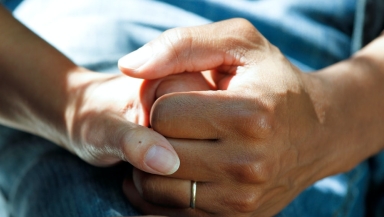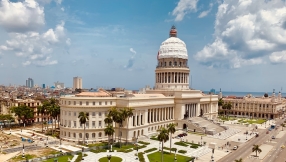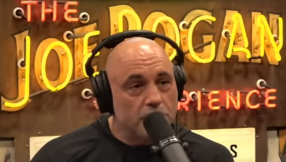
If assisted suicide becomes legal in the UK, would NHS staff have a right to veto Christian prayers being said when the lethal injections are administered? The question may seem far-fetched, but it is raised by the experience of writer Matthew Hall who witnessed the recent death of his late aunt in Canada.
In Canada, assisted suicide has been legal since 2016 and is officially termed Medical Assistance in Dying (MAiD).
Hall wrote about his experience in The Spectator magazine on September 21 and it makes for fascinating reading.
His aunt was 72 and in the early stages of motor neurone disease. She made the decision earlier this year to undergo MAiD against the wishes of her family.
Hall wrote: "My aunt had wanted me with her at the end. She knew that I am a practising Christian (there is nothing like being brought up in the 1980s by self-proclaimed 'radical vegans' to drive you into the arms of the church) and I sensed that deep-down she was conflicted about religion – that beneath all the crystals and dream-catchers there was still a remnant of the faith that as a teenage art student in late-1960s London she had dismissed as stuffy and old-fashioned."
Hall made it clear to her that he did not approve of euthanasia and would be saying prayers for her as she died. He did not tell her that he intended to read Anglican prayers for the dying. This left him with a "conundrum" - "how to give her what I knew she wanted but which might nevertheless upset the rebellious part of her even in her final moments".
In her last moments of consciousness, Hall read out a short prayer which he had translated into Welsh. His aunt looked up in "momentary surprise and delight at the sound of the language her father had often spoken at home", although, not being a Welsh speaker herself, she did not know that Hall had prayed: "Into your loving arms, O Lord, we commend your servant..."
Hall continued: "As the next syringe went in and the life drained from her, I was able to read the prayers for the dying aloud. The friends and family members in the room told me afterwards that they appreciated them, grateful that this traumatic occasion had been made into a solemn ceremony."
But the doctor, Hall related, "seemed unmoved."
"Less than a minute after declaring his patient dead, I heard him in the kitchen saying his goodbyes and chuckling at something, perhaps in relief that what had probably been an unexpected ordeal for him was over," Hall wrote.
He recorded the discomfort of the nurse involved in his aunt's euthanasia at the Christian prayers being said: "For some reason, the nurse remained in the room a little longer than she needed to. I overheard her say to my aunt's friend that hearing the prayers had 'got to her'.
"It occurred to me that those who opt to die this way must seldom be believers. The clinical process of putting someone down – and I use the phrase advisedly – to which she had become inured had been met on this occasion with a belief in the soul, in God, in consequences."
It looks likely that, as with the Abortion Act 1967, euthanasia will be legalised in the UK through a Private Member's Bill in Parliament with government backing. The BBC reported last December that Labour leader Sir Keir Starmer supports a change in the law to allow euthanasia. Now that he is Prime Minister he has the opportunity to get what he wants.
On morally contentious issues like abortion and euthanasia, Private Member's Bills allow governments that want to lift existing restrictions on these practices to achieve their aim without ministers having to take responsibility for the legislation.
The Mail on Sunday has reported that Labour MPs high up on this month's ballot allowing them to move Private's Member Bills in the House of Commons are being encouraged to take forward a proposal to legalise assisted suicide. One Labour MP admitted he has been offered two extra staff to help him draft legislation. https://www.christiantoday.com/article/pm.intends.to.fast.track.assisted.suicide.vote.before.christmas.according.to.reports/142171.htm
Hall's story flags up the role religious rites may or may not be allowed to play in assisted suicides. It is significant that he had his late aunt's consent to say prayers at her death but she did not know in advance that these would be Anglican prayers. Moreover, before she lost consciousness she did not understand the meaning of the specific Anglican prayer he said.
The Labour government would almost certainly want to regulate such a situation. It may well be that the NHS rules that followed the legislation laid down that relatives must have precise consent from their loved ones over the usage and content of prayers at the point of their death.
It would surely be possible for NHS staff uncomfortable with prayers being said during euthanasia to influence patients to withhold their consent. The legislation may even give NHS staff the right to forbid prayers being said in the absence of legally witnessed written consent.
Hall's experience shows that in the Brave New World of assisted suicide God is not wanted. Unfortunately, under the power structures prevailing in the UK it would appear to be frighteningly easy to banish him from the room.
Julian Mann is a former Church of England vicar, now an evangelical journalist based in Lancashire.













